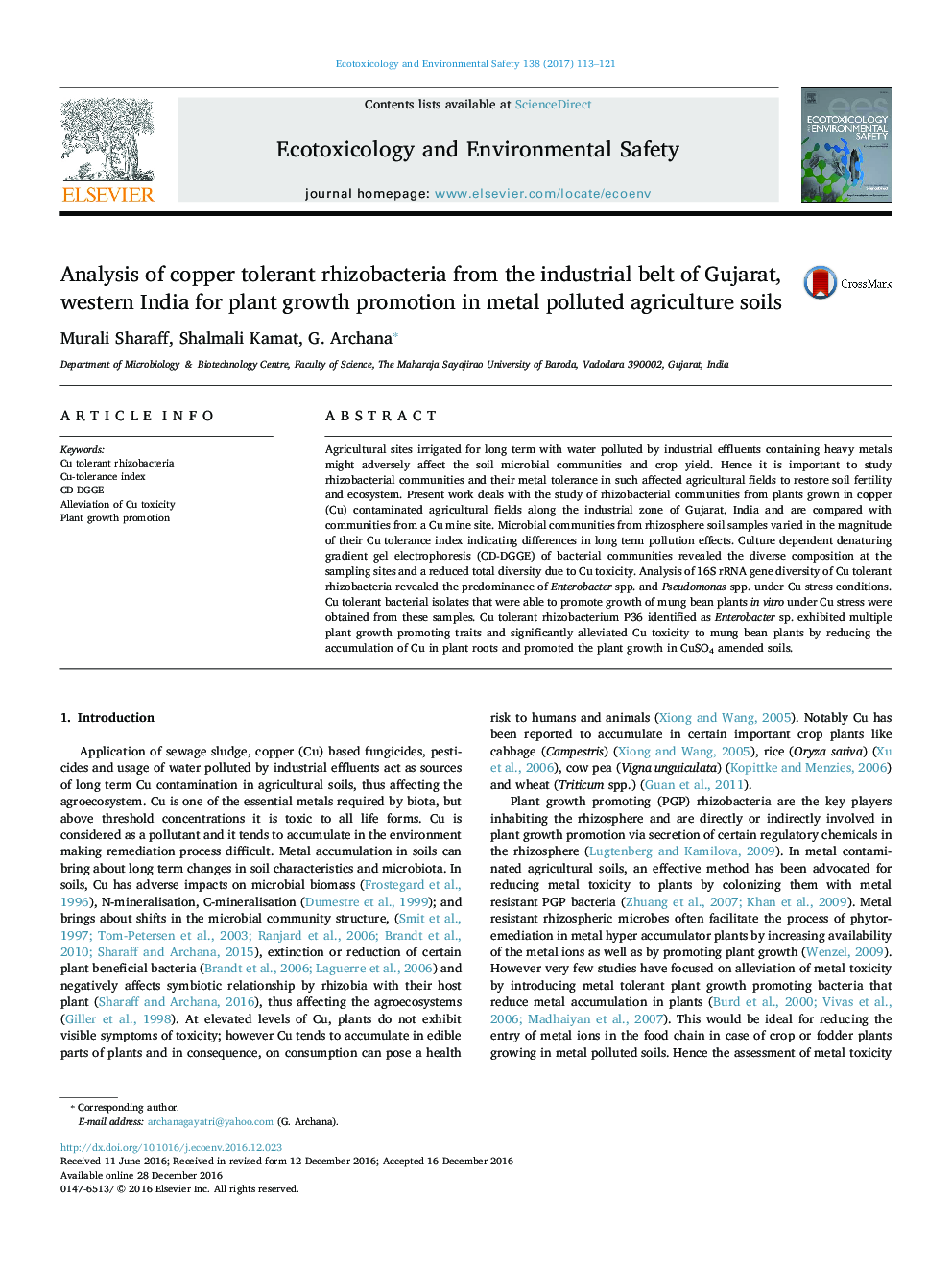| کد مقاله | کد نشریه | سال انتشار | مقاله انگلیسی | نسخه تمام متن |
|---|---|---|---|---|
| 5747970 | 1618926 | 2017 | 9 صفحه PDF | دانلود رایگان |
- Remediation of Cu toxicity in agricultural sites polluted by industrial effluents.
- Cu tolerance index determined the extent of Cu contamination.
- Culture dependent (CD) DGGE reveals diversified rhizobacterial communities.
- Pseudomonas and Enterobacter sp. are predominant in polluted agricultural sites.
- Enterobacter sp. P36 alleviated the Cu toxicity to mung bean plants.
Agricultural sites irrigated for long term with water polluted by industrial effluents containing heavy metals might adversely affect the soil microbial communities and crop yield. Hence it is important to study rhizobacterial communities and their metal tolerance in such affected agricultural fields to restore soil fertility and ecosystem. Present work deals with the study of rhizobacterial communities from plants grown in copper (Cu) contaminated agricultural fields along the industrial zone of Gujarat, India and are compared with communities from a Cu mine site. Microbial communities from rhizosphere soil samples varied in the magnitude of their Cu tolerance index indicating differences in long term pollution effects. Culture dependent denaturing gradient gel electrophoresis (CD-DGGE) of bacterial communities revealed the diverse composition at the sampling sites and a reduced total diversity due to Cu toxicity. Analysis of 16S rRNA gene diversity of Cu tolerant rhizobacteria revealed the predominance of Enterobacter spp. and Pseudomonas spp. under Cu stress conditions. Cu tolerant bacterial isolates that were able to promote growth of mung bean plants in vitro under Cu stress were obtained from these samples. Cu tolerant rhizobacterium P36 identified as Enterobacter sp. exhibited multiple plant growth promoting traits and significantly alleviated Cu toxicity to mung bean plants by reducing the accumulation of Cu in plant roots and promoted the plant growth in CuSO4 amended soils.
Journal: Ecotoxicology and Environmental Safety - Volume 138, April 2017, Pages 113-121
